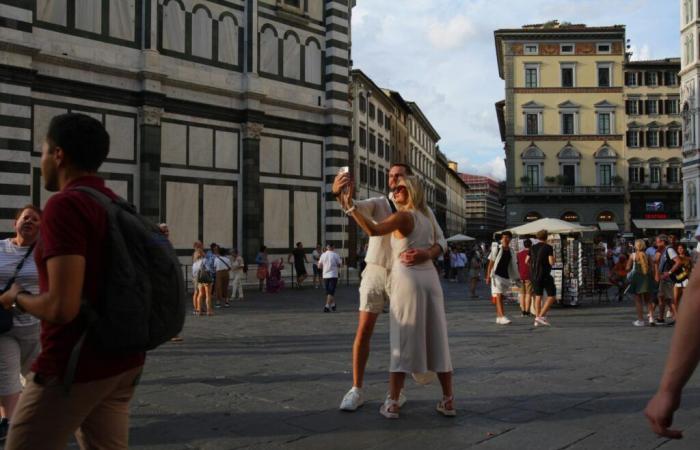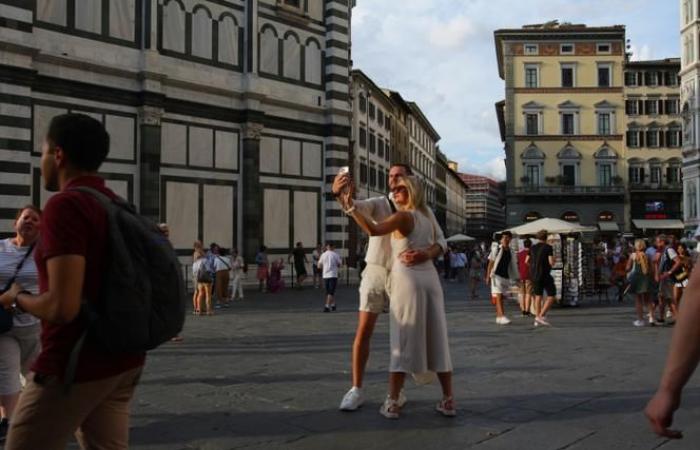LETTER FROM ROME
The object has become the symbol of the transformation of European city centers caused by the excesses of tourism. One of the most visited cities on the continent has decided to make them disappear from the landscape. Tuesday, November 12, the mayor of Florence, Sara Funaro (center left), announced the ban, from 2025, on key boxes marking apartments used for short-term rentals.
Equipped with codes and installed at the entrance to buildings, these devices allow users of platforms such as Airbnb or Booking to have access to their rentals in the absence of the owners. Their proliferation on city walls has become one of the symptoms of overtourism, signaling both the depopulation of historic centers and tensions in the housing market, two phenomena that have become common in major tourist destinations in Europe and beyond.
The decision of the mayor, elected in June, comes a few days after activists from the Salviamo Firenze association (“let's save Florence”) attached red stickers to the city's key boxes, symbolically making them more difficult to use. It should lead to the banning of these objects within the districts of Florence protected by Unesco, an area of approximately 2 kilometers in radius corresponding to the historic center. The measure also takes on particular significance as Florence prepares to host the G7 interministerial meeting on tourism on November 25 and 26, chaired by Italy in 2024.
Attendance record
The ban on key boxes popular with owners of short rental properties appears in an action plan called “Sustainable Tourism and Livable City” against nuisances linked to tourism and which also includes a ban on the use of golf carts in city. These vehicles, which have appeared in Italian cities, are used to transport tourists and their luggage through the narrow streets of historic centers, thereby distorting their environment. Dario Nardella, Sara Funaro's predecessor as mayor of Florence, had already introduced new regulations in October 2023 prohibiting the marketing of new short-term rentals in the historic center of the city.
Read also | Article reserved for our subscribers “On Airbnb, Parliament has passed a moral law”: Annecy, overwhelmed by furnished tourist accommodation, will “re-oxygenate” its old town
Read later
In this same spirit, the municipality of Florence approved a plan aimed at limiting the opening of new businesses and new restaurants in 42 streets and squares in the center in order to preserve historical activities, necessary for the very survival of the urban culture of the Tuscan capital. As in Barcelona, where the theme has become structural and where the municipality has decided on the disappearance of furnished tourist accommodation by 2029, as in Majorca or in Greece, tensions on the tourist issue have appeared throughout Italy since the post-Covid recovery. In 2023, the country actually observed the highest attendance ever measured, with 134 million visitors, or 3 million more than in 2019, before the pandemic. Tourism is also one of the main factors in maintaining Italian growth.
You have 38.98% of this article left to read. The rest is reserved for subscribers.







